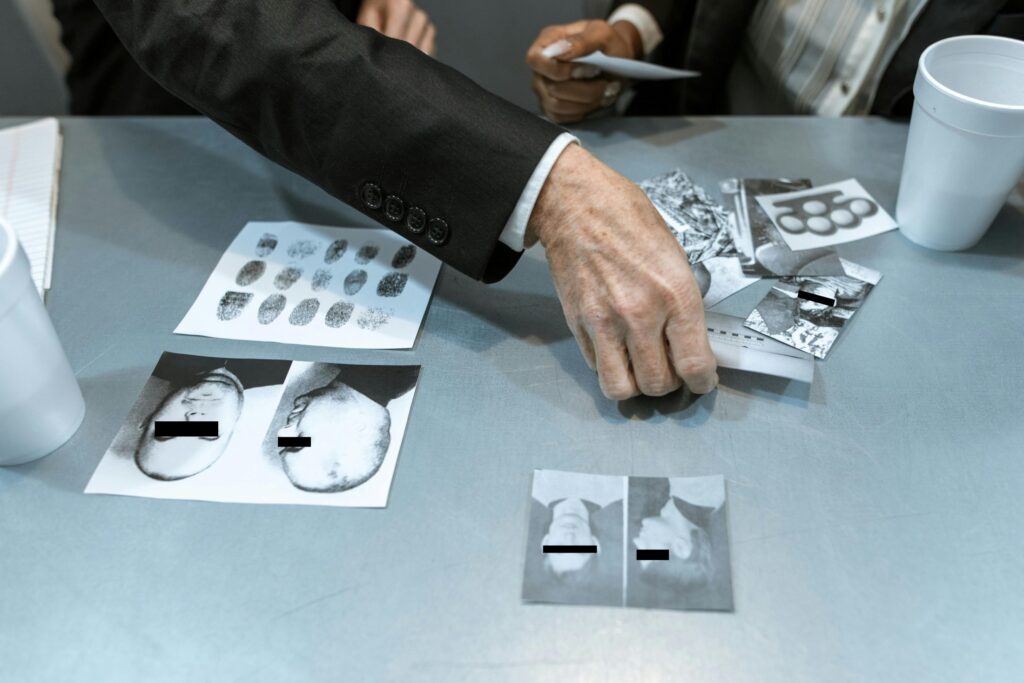Key takeaways
- This guide answers the question of what is the purpose of forensic psychology.
- Forensic psychology definition states that it is a branch of psychology designed to aid legal proceedings.
- Forensic psychologists study crime scene evidence and statements to get insights into the offender’s mental condition.
- The job of a forensic psychologist is to assess the criminal’s mental health to understand the factors that contribute to criminal behavior.
- The field also includes victimology, which is the study of victims to determine the extent of the impact and trauma after the incident.
- To become a forensic psychologist, you need at least a master’s degree in the field, a license to practice, and over 10 years of field experience.
- The average salary of a forensic psychologist is over $94,000 in 2025, as per Glassdoor.
For centuries, the view of criminal activity was black and white. Not anymore, though, as the introduction of forensic psychology has changed the way we think about criminals and criminal behavior. If you feel passionately about eliminating crime from society, you have to focus not only on catching and punishing criminals but also on preventing people from turning into criminals. That’s where forensic psychology comes into play.
In this article, we take a deep dive into the field to answer questions such as what the purpose of forensic psychology is. If you are an aspiring forensic psychologist or just a curious reader, make sure to give this a thorough read.
What is forensic psychology?

Forensic psychology is a field of psychology that is designed specifically to aid criminal investigations and legal proceedings. The field is vast and includes not only the study of criminal minds and their behavior, but also victimology and studying witnesses. Here, experts not only try to understand the motivation behind criminal acts or factors that contribute to the development of criminal behavior; they also focus on the impact such incidents have on victims and the witnesses.
Its extensive scope is where it differs from criminal psychology and criminology which is limited only to the study of crime, criminal minds, and criminal behavior. Because it is such a vast and diverse field, it becomes harder to define forensic psychology and its scope. Thus, the definition of forensic psychology is that it bridges the gap between psychology and the legal system.
It brings the clinical setting and application of psychological theories to criminal investigations in order to make the criminal justice system fairer. This holds especially true when criminals plead mental illness, mental stress, insanity, or other mental health or psychological disorders to justify criminal behavior. Now let’s take a deeper look into a forensic psychologist definition to better understand the role they play.
You may also be interested in: Where do criminal psychologists work?
What does a forensic psychologist do?
Now that we have the forensic psychology definition and understand forensic psychology meaning, we can move on to discuss what a career in legal forensic psychology looks like. A forensic psychologist applies clinical psychology principles to legal proceedings and criminal investigations. Their duties and responsibilities are varied and depend on multiple factors. Generally, their responsibilities include, but are not limited to:
- Assessing criminals amid criminal proceedings and investigations.
- Provide expert assessment to law enforcement professionals.
- Ensure a criminal or witness is fit to stand trial
- Testify in court as an expert witness
- Evaluate threats and the extent of threats an offender or potential offender poses to society and the complainant.
- Provide treatment recommendations for incarcerated criminals with mental disorders.
- Aid in the administration of treatment to incarcerated criminals through counseling and other means necessary.
- Assess the victims’ and witnesses’ mental health conditions and help them navigate life after a traumatic incident.
The role of a forensic psychologist is an important one. Crime or criminal activity is never truly black and white, however, law enforcement professionals viewed it as such for the longest time. With the introduction of forensic psychology, the view surrounding the development of criminal behavior has evolved.
What we now have is a deeper understanding of the many factors that contribute to the development of criminals. Moreover, we also have comprehensive laws and policies that not only make for a fairer justice system but also help create strategies that will prevent the development of criminal behavior.
Related: What do forensic psychologists do?
Do forensic psychologists go to crime scenes?

Forensic psychologists do not necessarily need to visit the crime scene. Their primary responsibility is to analyze the evidence, read the witness, victim, offender’s, and officers’ statements to determine the mental condition of the offender. Moreover, they are in charge of criminal profiling, outlining, and categorizing behavioral patterns. It is their assessment that provides law enforcement professionals with clarity and aids legal investigations.
However, if a forensic psychologist finds any discrepancies in the evidence or is unable to come to a conclusive decision, they can visit the crime scene. They are neither prohibited nor obligated to visit the crime scene as per forensic psychology law.
What role does a forensic psychologist play in sentencing?
A forensic psychologist plays an extensive role when it comes to sentencing criminals. They apply psychological principles and theories to determine the motivation behind criminal acts, especially those involving violence. Thus, forensic psychologists play a critical role in sentencing. Their expert analysis and diagnosis can help make informed decisions.
But most importantly, it is the job of a forensic psychologist to determine how likely it is that an incarcerated criminal will become a repeat offender. This evaluation alone can significantly impact the judge’s final decision and add a significant number of years and deny the incarcerated criminal a chance of bail, reduced sentencing, or any kind of relief.
So there is no simple answer to what role does a forensic psychologist play in sentencing. Their evaluations and expert opinions can sway the direction of the case completely. Moreover, it also impacts the extent and severity of sentencing and rehabilitation.
Examples of applications of forensic psychology law
For example, if a defendant pleads mental distress in their defense, a forensic psychologist evaluates their mental health to determine if that is true or not. If, as per a forensic psychologist’s analysis, a defendant pleading mental insanity or distress appears to be attempting to mislead the court, the punishment they receive will be much more severe. However, if a forensic psychologist attests to such claims, the sentencing, punishment, and rehabilitation can look very different for the incarcerated criminal.
In cases where child custody is in question, they conduct extensive evaluations of parents and the child to determine the best way forward. Moreover, in a case where a defendant pleads self-defense, a forensic psychologist is one of the primary experts who can determine the extent of truth in the claim.
In these and many other similar cases, their contributions have a direct impact on the sentencing. However, their role or their contributions extend across nearly all cases, especially ones involving violence, homicide, harassment, abuse, rape, drug abuse, kidnapping, and so on.
How much does a forensic psychologist earn?
Earning potential is a significant consideration when choosing a potential career path to pursue for many people. The field of forensic psychology is rewarding in nearly every aspect. As a forensic psychologist, you help answer the unknown during criminal investigations and legal proceedings. Not only do the contributions of a forensic psychologist enable a free and fair trial, but also just and informed sentencing.
Moreover, it is also a financially rewarding career path. The average annual salary of a Forensic Psychologist in the United States of America is $94,419 in 2025, as per Glassdoor. In fact, a detailed report by the global hiring platform states, qualified professionals employed in leadership positions can potentially earn up to $112,561 per year.
It is important to note that fresh graduates, with little to no experience, will not earn as much as established professionals. The average entry-level salary of forensic psychologists is around $72,000. Howeverseveral factors determine one’s earning potential. The most important factor is the level of education of an individual.
What education do you need to become a forensic psychologist?

To become a forensic psychologist, you need a bachelor’s degree in forensic psychology or a related field. A bachelor’s degree is the minimum education required for a career in the field. However, a bachelor’s is not enough, especially if you want to practice in a clinical setting or obtain leadership roles in the field.
To become a forensic psychologist, you need to meet the following criteria:
- Have a bachelor’s in psychology, criminal psychology, criminology or forensic psychology.
- A master’s degree in forensic psychology.
- At least two years of work experience in the field – preferably a clinical setting.
- If you have a PhD in Forensic Psychology, you do not need to meet minimum work experience requirements.
- Obtain a license to practice in a clinical setting.
Note you can also pursue a bachelor’s degree in forensic science with a major in forensic psychology to become a forensic psychologist.
Moreover, to be considered an expert worthy of providing the court and legal system professional guidance, you need at least a decade of experience in the professional field. This includes initial supervised practice and at least five years of unsupervised practice.
Related: How long does it take to become a criminal psychologist?
Launch your forensic psychology career with the right education!
The best way to kickstart any career path is to enroll in a relevant program. For aspiring forensic psychologists, the right educational path is a bachelor’s degree in forensic psychology. You can also enroll in an undergraduate psychology program and move on to specialize in forensic psychology in your master’s program, which is essential for a career in the field.
A degree in forensic psychology can lead to many exciting and rewarding career opportunities in criminal justice. In fact, you can even become an FBI Profiler by joining the Bureau as a Special Agent. The choices are endless, and the scope is vast. So, make sure you make the right decision and choose the best college for forensic psychology in the US.
